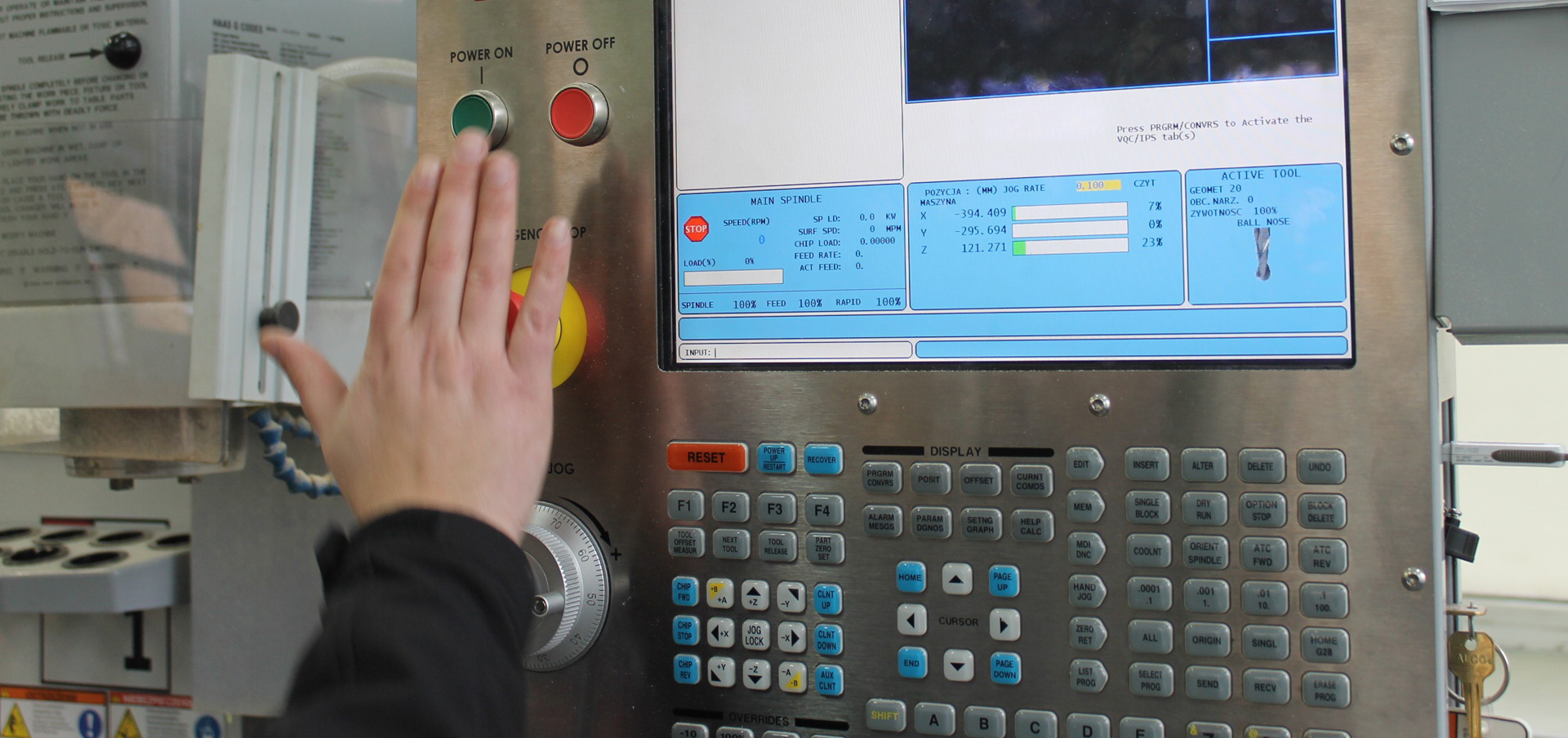CNC machinists are true masters of their trade. Despite popular assumption, CNC machinists’ role goes much beyond the operating machine. At the forefront of the manufacturing industry, CNC machinists are the professionals, the mathematicians, designers, and innovators responsible for building some of today’s most advanced products. To put it into perspective, a CNC machinist can transform a block of steel into a working part for one of the most advanced aerospace companies in the nation.
If you are both creative and technical, an out-of-the-box as well as a critical-thinker, CNC machining may be the right career choice for you. With just a little bit of training and education under your belt, you too can be on your way to making tools, dies, molds, and high-tech products like the pros.
Where do you begin?
At the bare minimum, you need a high school diploma to become a CNC machinist. Today, however, the vast majority of aspiring machinists pursue postsecondary CNC machining training to hone and perfect their skills. Why? Because many top manufacturers today prefer applicants who hold some structured, college-level classroom experience combined with practical training. At Goodwin College, you’ll get both.
In Goodwin’s CNC machinist school, you can become a prime candidate for your dream job, in anywhere from two semesters to two academic years! Whether you pursue our certificate program or an associate degree in CNC machining, you will take courses in metal work, technical drawings and blueprints, manufacturing mathematics, as well as computer-aided machining. Best of all, you’ll receive hands-on training with state-of-the-art equipment, including our new CNC 3-axis milling and turning machines. You’ll also work actively with Mastercam and CAD/CAM software to enhance your programming skills.
There is a lot to learn in a CNC machinist school, but what are the top-of-the-list takeaways? What learnings will make you stand out above other candidates, as a skilled and readied CNC machinist? What are the various outcomes and advantages of Goodwin’s CNC machining degree program? Let’s find out!
If you decide to pursue an associate in CNC Machining at Goodwin College, you can expect to:
- Learn the manufacturing skills needed to be a successful CNC machinist. From precision-cutting to reading blueprints, interpreting dimensions to programming, setting up to fully operating CNC lathes and mills, you will learn it all.
- Master technical drawings. We put great emphasis on the creation, interpretation, and utilization of technical drawings in our CNC machining program.
- Become an expert of CAD/CAM software and the math skills that go with it. In our CNC machinist school, you will work directly with CAD/CAM software and develop the mathematical skills to set-up, program, as well as operate CNC lathes and mills in order to produce parts.
- Learn the ins and outs of manufacturing processes. CNC machinists must be proficient in all areas of manufacturing, including both manual and computer-aided processes. In our CNC machinist school, you can expect to learn job planning, bench layout, as well as manual grinding, drilling, and milling.
- Apply knowledge of material properties and metal working theory to practice. Upon completion of our CNC degree program, you will understand how to associate and apply your classroom learnings to characterize material machinability, tool holding, tool cutter presentation, as well as the selection of appropriate coolants for CNC manufacturing.
- Gain other, versatile competencies that can be applied to any manufacturing career. In addition to technical expertise, Goodwin College encourages sound teambuilding, problem-solving, and communications skills in our students. This is what today’s top employers are looking for: someone who is organized, who works well with others, who can think critically, and who has strong written and oral skills.
- Understand the regulatory requirements of the manufacturing industry, government, and individual clients. Students of our CNC machining programs not only learn about the regulatory compliances of the industry, but also learn how to develop and characterize job planning and execution to meet any that are required by the industry, government, or their customer.
- Recognize the key elements of a successful manufacturing organization. An effective manufacturing organization is well-versed in quality control, maintenance, their use of fixtures, measurements, as well as test equipment to support manufacturing.
- Prepare for nationally-recognized, portable credentials from the Manufacturing Skill Standards Council (MSSC) as Certified Production Technician (CPT). Upon successfully completing our 30-credit certificate or associate degree program, you will also be fully prepared to pursue a National Institute for Metalworking Skills (NIMS) credential as a CNC operator.
- Learn applicable skills for a range of different careers within the manufacturing field. If you want to branch out beyond CNC machining, you can also pursue other, related careers with a CNC machining education under your belt. These include: metal and plastic machine working, welding, cutting, soldering, brazing, machine maintenance and repairs. You may also choose to advance your education even further, towards a more managerial role, by obtaining a Bachelor’s Manufacturing Management degree.
The various advantages of a postsecondary CNC machinist school are just some of the many reasons to take the next step in your career. By offering you practical experience with state-of-the-art machinery, CAD/CAM software, cutting precision tools, job planning and execution, and more – Goodwin College can help you get there fast. Call 800-889-3282 to learn more about our certificate-level and associate degree programs in CNC Machining. You may also visit www.goodwin.edu/majors/manufacturing/cnc/ for more information.
Goodwin University is a nonprofit institution of higher education and is accredited by the New England Commission of Higher Education (NECHE), formerly known as the New England Association of Schools and Colleges (NEASC). Goodwin University was founded in 1999, with the goal of serving a diverse student population with career-focused degree programs that lead to strong employment outcomes.

